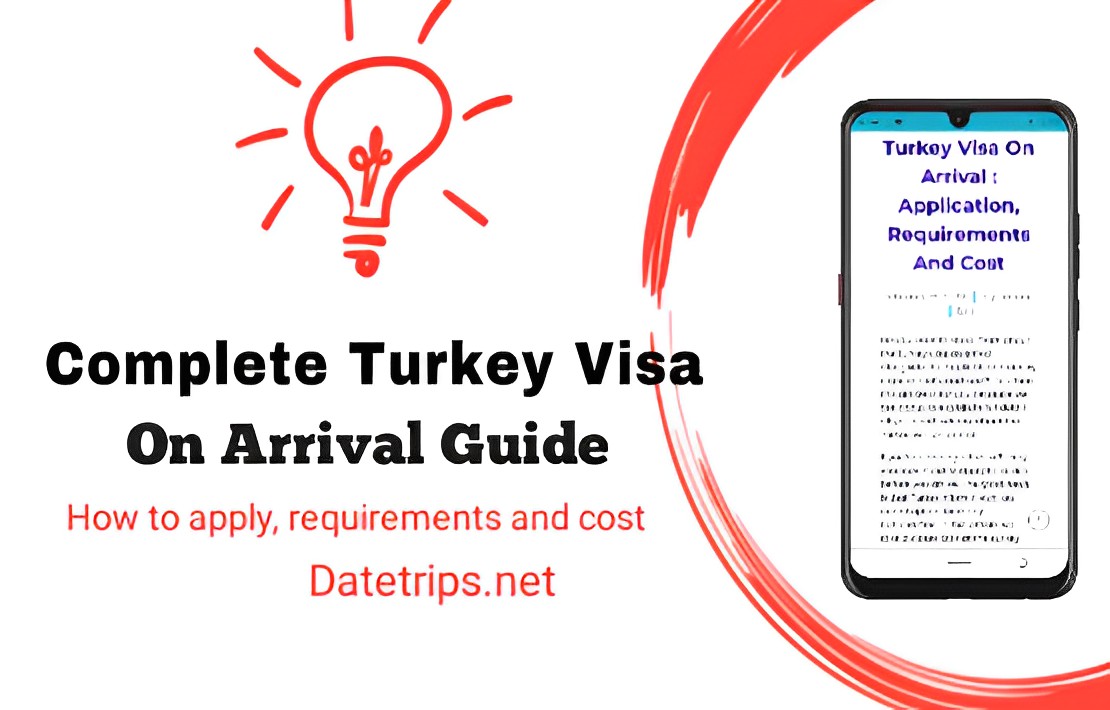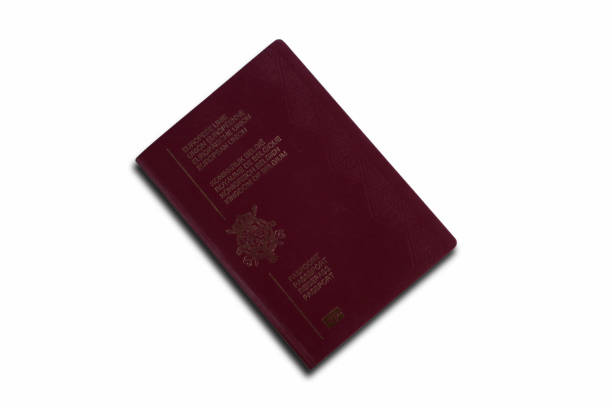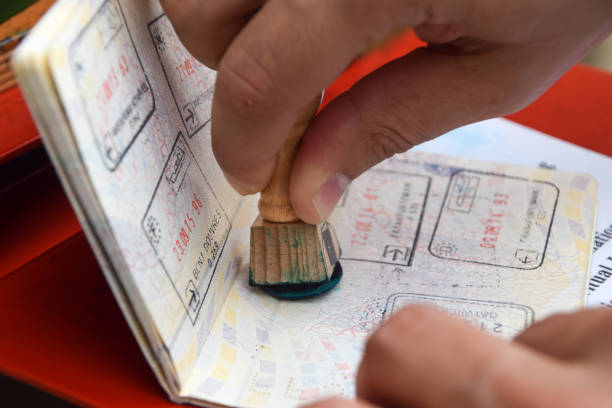Turkey Visa on Arrival : Application, Requirements and Cost
Do you want to know more about the Turkey visa on arrival alongside the application process, requirements, and cost? If so then this article is for you because we are about to explain in full detail all you need to know about the Turkey visa on arrival.
Also read: Can I get Turkey Visa on arrival?
If you’re planning a trip to Turkey, you may need to apply for a visa before you arrive. The good news is that Turkey offers a visa-on-arrival option for many nationalities. In this article, we’ll take a closer look at the Turkey visa-on-arrival application process, the requirements, and the cost.
What is a Turkey Visa on Arrival?
A Turkey visa on arrival is a type of visa that enables eligible travelers to get a visa upon arrival at a Turkish airport or border crossing. This particular type of visa is available to citizens of many countries, including the United States, Canada, and most European Union member states.
However, the visa on arrival is valid for stays of up to 90 days and it is strictly for only tourist or business purposes. It is important to note that this visa cannot be extended beyond the 90-day limit and cannot be used for employment or residency purposes.
How to Apply for a Turkey Visa on Arrival
Applying for a Turkey visa on arrival is a straightforward process. When you arrive in Turkey, simply proceed to the visa desk at the airport or border crossing and present your passport and required documents.
You will need to pay a fee for the visa, which can be paid in cash or by credit card. After you have paid the fee, your passport will be stamped and you will be allowed to enter Turkey.
Turkey Visa on Arrival Requirements
To be eligible for a Turkey visa on arrival, you must meet the following requirements:
- Your passport must be valid for at least six months beyond your intended stay in Turkey
- You must have a return or onward ticket, as well as sufficient funds to support yourself during your stay in Turkey
- You must not have a criminal record or be on any government watch lists
- You must provide evidence of legal residence
- You must provide a passport photograph
- You must provide proof of travel
- You must provide proof of health insurance
- You must provide a valid visa
- You must be traveling for tourist or business purposes only and not for employment or residency.
Note: It is important to note that these requirements can vary depending on your nationality. To ensure that you meet all the requirements, it is recommended that you check the Turkish embassy or consulate website in your home country before you travel.
So this way you tend to have a better idea of what areas of requirements you would need to meet for your country.
Turkey Visa on Arrival Cost
The cost of a Turkey visa on arrival currently ranges from $35 – $80. This fee can be paid in cash or by credit card at the visa desk at the airport or border crossing.
It is important to note that the visa fee is subject to change, so it is recommended that you check the Turkish embassy or consulate website in your home country for the latest information before intending to start the application process.
Advantages of Turkey Visa on Arrival
The Turkey visa on arrival offers several advantages to travelers which enables travelers to opt-in for this particular visa type. A few advantages include:
- It allows eligible travelers to enter Turkey without having to apply for a visa in advance, which can save time and hassle. This can be particularly beneficial for travelers who are making last-minute travel plans.
- The Turkey visa on arrival is relatively affordable, with a fee that ranges from $35 – $80. This is much less expensive than visa fees in many other countries.
- The visa on arrival is valid for up to 90 days, which provides ample time for most tourists or business travelers to enjoy their stay in Turkey. Additionally, the visa can be used for multiple entries during the 90-day period, which allows travelers to leave and re-enter the country as needed.
Limitations of Turkey Visa on Arrival
While the Turkey visa on arrival offers many benefits, there are also some limitations to keep in mind and few limitations include:
- Not all nationalities are eligible for the visa on arrival. If you are not eligible for the visa on arrival, you will need to apply for a visa in advance.
- The visa on arrival is only valid for stays of up to 90 days. If you plan to stay in Turkey for longer than 90 days, you will need to apply for a longer-term visa.
- The visa on arrival cannot be used for employment or residency purposes. If you plan to work or live in Turkey, you will need to apply for a work or residence permit.
By following the application requirements and paying the visa fee, you can enter Turkey hassle-free and explore all the country has to offer. Whether you are interested in history, culture, or natural beauty, Turkey has something for everyone, and the visa on arrival allows you to experience it all. However you now know about the Turkey visa on arrival application process, requirements and cost.
Frequently Asked Questions
How do I get a visa on arrival in Turkey?
You can get a visa on arrival in Turkey by applying at the embassy with your required documents intact and paying the required fee.
Do you have to pay on arrival in Turkey?
Yes, you would have to pay for the Turkey visa on arrival before departure.
Do you have to pay to exit Turkey?
No, you don’t have to pay to exit Turkey, you can exit the country at your will or when your stay is due.
Conclusion
In summary, a Turkey visa on arrival is a convenient option for eligible travelers who are visiting Turkey for tourism or business purposes. The application process is straightforward, and the requirements are relatively simple.
If you are planning a trip to Turkey, it is important to check the latest information regarding visa requirements and fees. By doing so, you can ensure a smooth and hassle-free travel experience.
Share this article and drop your questions in the comments section below.
Keep following Datetrips to get the latest updates on visa tips.






